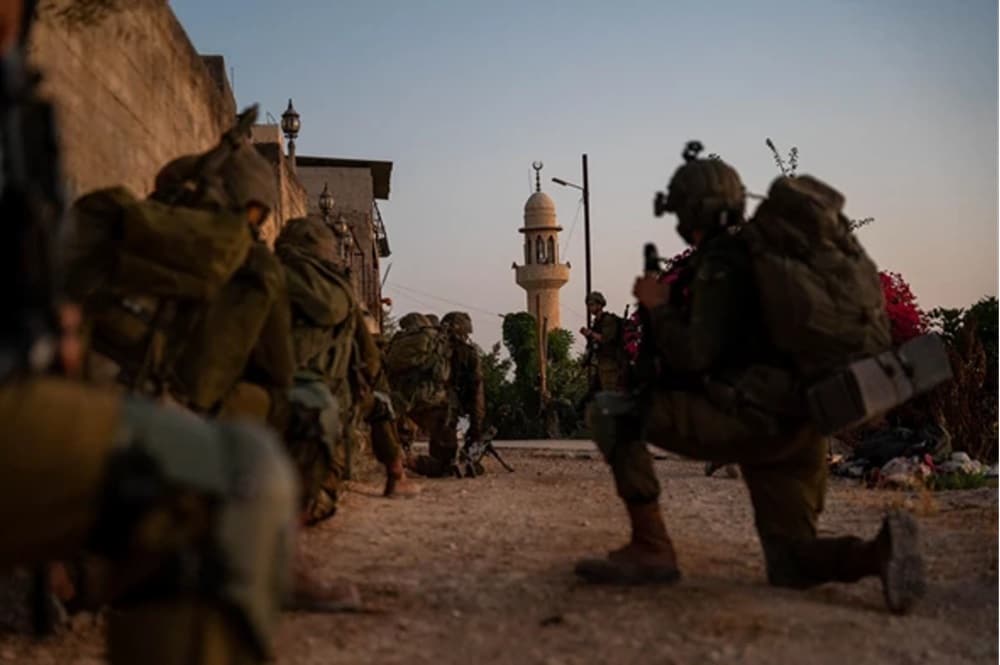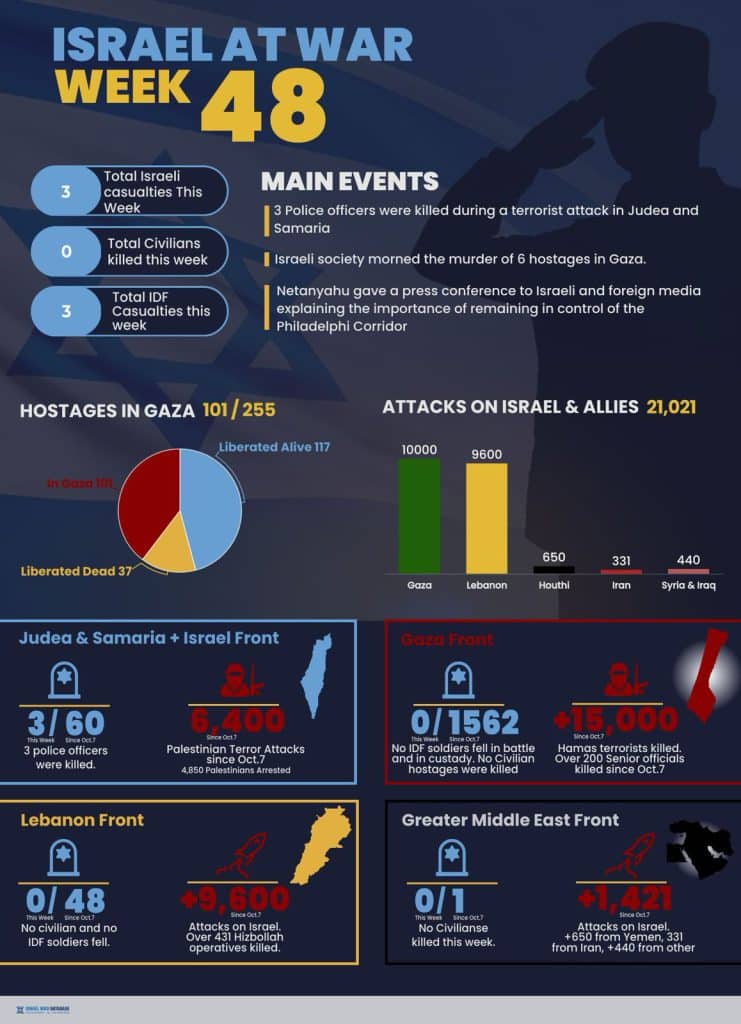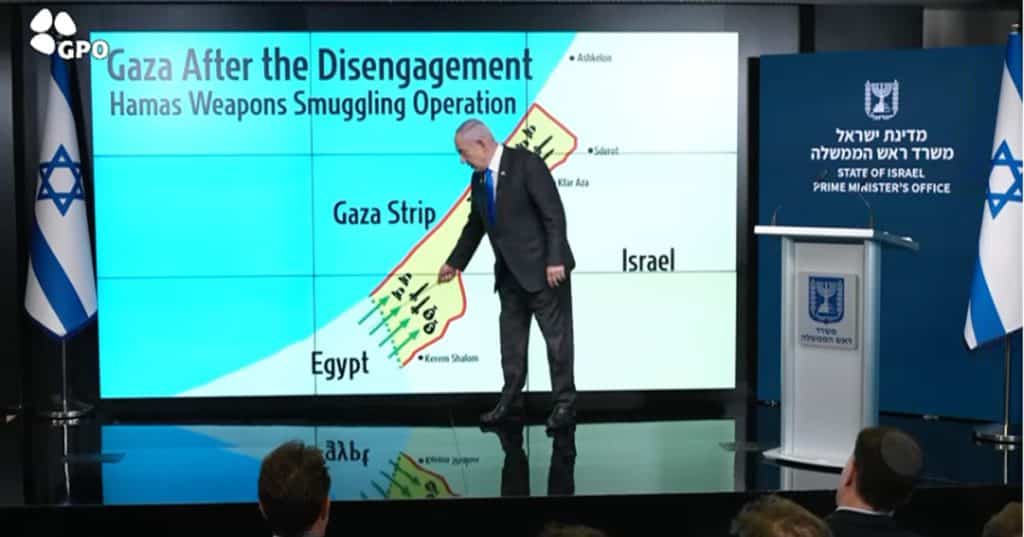
Overview
- The British government has suspended 30 out of 350 arms licenses for sales to Israel, citing concerns about civilian harm in Gaza.
- The IDF has reduced operations in Gaza due to the ongoing polio vaccination campaign.
- In a press conference on September 4 with foreign journalists, Netanyahu reiterated the importance of the Philadelphi Corridor, stating that Israel is committed to defeating Hamas and eliminating the threat. Prime Minister Netanyahu warned that a withdrawal from the corridor would lead to the smuggling of hostages above ground to places like Iran or Yemen.
- The location of a tunnel in Rafah was discovered, where the bodies of six hostages executed by Hamas were found. The tunnel was situated in a children’s room, surrounded by drawings.
- Satellite images show that 6.5 km of asphalt road has been laid along the Philadelphi Corridor, covering half of its length.
- Prime Minister Netanyahu has instructed the military to prepare for direct food distribution in Gaza City, replacing humanitarian organizations, some of which have stopped distributing food due to attacks by crowds, gangs, or militants.
- Hezbollah has increased its rocket attacks on Israel, reaching peak intensity, while Israel has not significantly escalated its response. In August, 1,307 rockets were fired at northern Israel, compared to 1,091 in July.
International
- On September 3, the Italian Military Chief of Staff met with IDF Chief of Staff Herzi Halevi in Israel to discuss strategic partnerships in light of regional threats. Italy plays a small role in protecting freedom of navigation in the Red Sea.
- The British government has suspended 30 out of 350 weapons licenses for sales to Israel, citing concerns about civilian harm in Gaza.
- Turkey formally applied to join BRICS, the economic and political alliance led by Russia and China, and is expected to be welcomed into the organization by October. Turkish officials explained that the “geopolitical center of gravity” is shifting away from Western countries. This move could weaken NATO, of which Turkey is the second-largest military force, though Turkey will remain in the alliance and may work to disrupt its activities from within.
Gaza Strip
Diplomatic
- The U.S. Department of Justice publicized that months ago, it had filed indictments against six Hamas officials, three of whom have since been killed (Ismail Haniyeh, Mohammed Deif, and Marwan Issa) and three who are still alive (Yahya Sinwar, Khaled Mashal, and Ali Baraka, Hamas’ representative in Lebanon). The charges relate to the October 7 massacre and attacks on American citizens as part of the kidnappings and killings.
- The Swiss government approved a draft law banning Hamas activities in the country, officially designating it as a terrorist organization.
- The Egyptian Chief of Staff, Ahmed Khalifa, visited the Philadelphi Corridor to assess security arrangements along the Gaza border.
Prime Minister Netanyahu’s Press Conference:
- In a press conference on September 4 with foreign journalists, Netanyahu reiterated the importance of the Philadelphi Corridor, stating that Israel is committed to defeating Hamas and eliminating the threat. He called the 2005 Gaza withdrawal a mistake and emphasized that without control of the corridor, Iran will continue arming Gaza. Demilitarization is essential to achieving the three key objectives of the war. Netanyahu expressed that withdrawing from the corridor now would make it impossible to regain control later due to political, not military, reasons.
- Prime Minister Netanyahu warned that a withdrawal from the corridor would lead to the smuggling of hostages above ground to places like Iran or Yemen.
- Netanyahu estimated that at least 17,000 to 18,000 terrorists have been killed. He also mentioned discussions with U.S. Secretary of State Antony Blinken about the possibility of reducing forces in the Philadelphi Corridor if a reliable alternative military force can prevent arms smuggling.
Hostage Deal
- According to AXIOS, the Biden administration is reconsidering its stance on Hamas and potential hostage deals. The administration now views Hamas, rather than Israel, as the main obstacle to an agreement, particularly due to the execution of hostages and Hamas’ psychological warfare tactics, which include publishing videos of executed captives. In an interview with Fox News on Thursday, Prime Minister Netanyahu stated that Israel is not close to reaching a deal.
- The Institute for the Study of War (ISW) warns that a potential deal involving a withdrawal from the Philadelphi Corridor and the release of hundreds or thousands of security prisoners would strengthen Hamas militarily. During that time, Hamas could smuggle weapons into Gaza through tunnels from the Sinai Peninsula, and the released Palestinian prisoners, many with military training, would rejoin Hamas’ ranks.
- Khalil al-Hayya, a senior Hamas leader, is demanding the release of 50 prisoners for every soldier hostage and 30 prisoners for every civilian hostage, totaling the release of thousands of security prisoners, which would bolster Hamas in Judea, Samaria and Gaza.
- Hamas has released videos showing of two hostages who were later executed in a tunnel near Rafah, as part of its psychological warfare against Israel.
- Messages were also published in Hebrew, English, and Arabic, attributed to Abu Obeida (unclear if he is still alive), stating that no hostages will be released until the full withdrawal of IDF forces from strategic regions and the release of all prisoners.
- Hamas released a video featuring the image of Abu Obeida (unclear if he is still alive), threatening to execute hostages whenever IDF forces approach, citing the “Nuseirat events” (the successful rescue of four hostages in June) as a turning point. The chance of rescuing hostages through military operations has drastically decreased due to Hamas’ willingness to execute them, and many hostages are being held in central Gaza camps.
- The UN Security Council held its first discussion on the situation of Israeli hostages in Gaza, following a request from Israeli Ambassador Danny Danon. Efrat Baron-Harlev, director of Schneider Children’s Medical Center, who treated released child hostages, participated in the discussion.
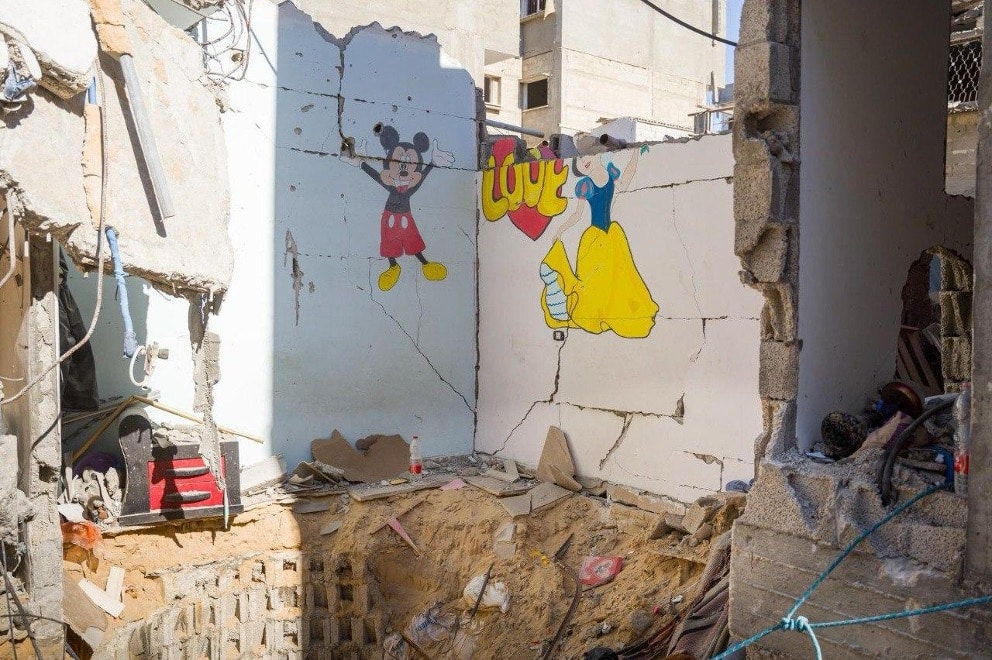
Operational
Although military operations have scaled down, limited fighting continues. A few IDF brigades are conducting raids and specific operations. Over the past week, IDF forces killed 100 militants and destroyed 40 terrorist infrastructure throughout the Gaza Strip.
- The IDF have reduced operations in Gaza due to the ongoing polio vaccination campaign. In Khan Younis, 152,000 children have been vaccinated after 167,000 were vaccinated in central Gaza. The goal is to vaccinate 340,000 children in Khan Younis (8,000 have been vaccinated in Rafah). Vaccinations will move to northern Gaza starting today and continue until September 9.
- The Israeli Air Force (IAF) has targeted schools in Gaza City used as command-and-control centers by terrorists.
- According to ISW, the combination of civilian evacuations from rocket-launch areas, depletion of militant rocket supplies, and IDF airstrikes that destroyed stockpiles has neutralized the rocket threat from Gaza. Militants need time to regroup and produce new rockets, if possible.
- IDF forces mapped and destroyed an attack tunnel over 1 km long in the Beit Lahiya area, which reached within 200 meters of the security fence near Zikim. The tunnel had electrical infrastructure and transport rails.
- The location of a tunnel in Rafah was discovered, where the bodies of six hostages executed by Hamas were found. The tunnel was situated in a children’s room, surrounded by drawings, indicating Hamas’ willingness to blend into the civilian population for human shields and guerrilla warfare.
- The IDF’s 401st Task Force has eliminated 200 militants and seized a large cache of weapons in recent weeks, including Kalashnikovs, RPG launchers, mortar bombs, and sniper rifles. Food and water found in an underground bunker suggested that the supplies had been stolen from humanitarian convoys. Additionally, 10 long-range rocket launchers were uncovered in the ground, capable of targeting central Israel. According to Netanyahu’s statement on September 4, 2,000 militants have been killed in the Rafah area since May.
- Satellite images show that 6.5 km of asphalt road has been laid along the Philadelphi Corridor, covering half of its length.
- Prime Minister Netanyahu has instructed the military to prepare for direct food distribution in Gaza City, replacing humanitarian organizations, some of which have stopped distributing food due to attacks by crowds, gangs, or militants. Netanyahu stated in his speech on September 2 that transitioning to military-controlled food distribution is one of the most dangerous challenges as it brings IDF soldiers closer to civilians and militants, increasing the risk to their lives.
Hamas’ Plans Revealed by the Bild
Hamas is gearing up for long-term guerrilla warfare. Sinwar is determined not to give up control of Gaza, and any ceasefire agreement, even without control over the Philadelphi Corridor, would be used to recruit militants, establish weapons manufacturing workshops, and reorganize military brigades. Humanitarian convoys remain under Hamas’ control, further solidifying its civilian and military governance.
A previously unknown document from Hamas’ military intelligence was discovered, revealing how the terrorist organization is manipulating the international community, tormenting the families of Israeli hostages, and planning to rebuild its military apparatus. This document, believed to belong to Hamas leader Yahya Sinwar and dated spring 2024, outlines key factors for Hamas to consider during negotiations. For example, it emphasizes maintaining Hamas’ ability to act against Israel and aims to “exhaust” Israel’s political and military apparatus while “eroding” international pressure on Israel. Hamas is not interested in a quick end to the war, even though its military capabilities have weakened. Instead, it aims to drag out the negotiations to improve critical terms in the agreement, even if it prolongs the conflict.
- The document reveals Hamas’ deliberate use of hostages as a psychological weapon. It openly encourages continued psychological pressure on the families of Israeli hostages to increase public pressure on the Israeli government. During future negotiations, Hamas planned to allow the Red Cross to visit some of the hostages as a goodwill gesture, but only as a way to maintain pressure on Israel to extend the ceasefire.
- The deaths of thousands of Palestinian civilians are not mentioned once in the document. Instead, Hamas is focused on using the conflict to restore its military capabilities and undermine Israel’s international standing. Hamas outlines how it plans to maneuver diplomatically by proposing the deployment of Arab forces along Gaza’s eastern and northern borders. These forces, however, would serve one purpose: to prevent Israel from re-entering Gaza after the war ends, while Hamas reorganizes its ranks and military capabilities for future battles.
- The document details how Hamas should manipulate the media, emphasizing that Israel, not Hamas, should be blamed for any failed negotiations. The message to the media should be that Hamas agreed to a deal proposed by the U.S., but it fell through due to Israel’s “stubbornness.”
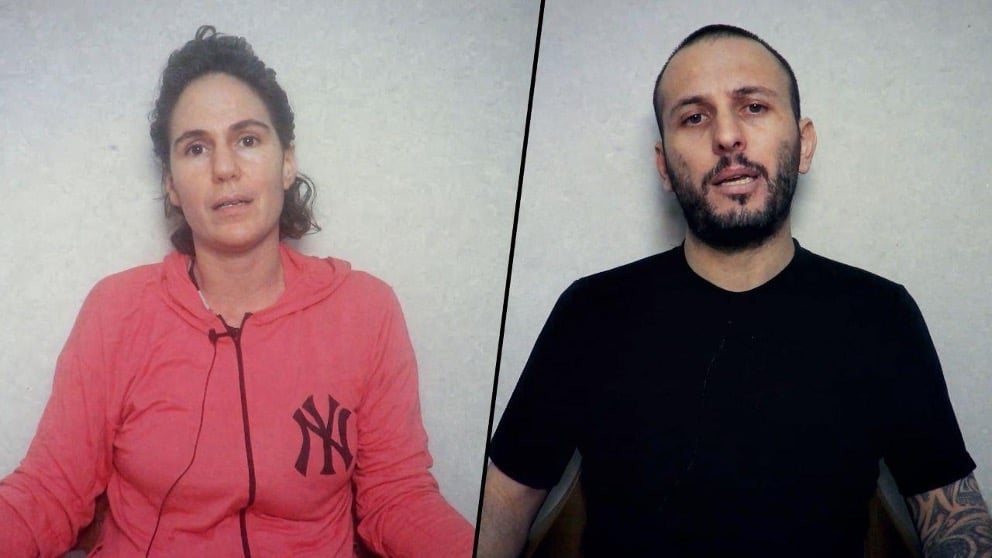
Lebanon
Operational
Hezbollah has increased its rocket attacks on Israel, reaching peak intensity, while Israel has not significantly escalated its response. In August, 1,307 rockets were fired at northern Israel, compared to 1,091 in July. Israel’s air defense system intercepted two drones from Lebanon, and the IAF targeted rocket launchers and unmanned buildings in southern Lebanon. Despite these attacks, the situation in the north has become a new normal, with Hezbollah crossing Israel’s red lines without significant retaliation. In response to the attacks, the IAF has been targeting terrorist infrastructure and buildings, although these structures were unmanned. From Friday through Saturday night, 15 rocket launchers were destroyed.
Judea and Samaria
- Mohammad Mustafa, the Prime Minister of the PA, met with Dutch Foreign Minister, Kasper Veldkamp, in Ramallah to discuss efforts to end the fighting in Gaza and the Israeli security operations in Judea and Samaria.
- During a violent protest against Israeli settlements near Nablus a Turkish-American citizen was killed by Israeli forces. The IDF announced it would investigate the incident.
- Three Israeli police officers were killed in a drive-by shooting near the Tarkumiya checkpoint on Highway 35 in the southern Hebron area. The perpetrator fled to Hebron, where Israeli forces located and killed him.
- As part of the operation in Jenin, Tulkarm, Tubas, and Far’a: In the past week, 35 terrorists were killed, 45 wanted individuals were arrested, dozens of weapons and explosive devices were seized, and 4 explosives labs were destroyed.
- Operations in the Jordan Valley:Israeli security forces conducted operations in three areas, killing seven terrorists, including Mohammed Zakaria Zubeidi (the son of Zakaria Zubeidi) and other terrorists involved in shooting attacks in the Seam Zone (into Israel proper from the green line).
Turkey
Turkey is making changes to its geopolitical posture. Not only did it apply to join the BRICS but it welcomed Egyptian president, Abdel Fattah El-Sisi in Ankara to sign a sign trade and energy agreement. It is the first visit of an Egyptian president in Turkey in more than a decade. Ankara and Cairo had cut ties in 2013 when El Sisi ousted the Muslim Brotherhood government, an ally of Erdogan.
Erdogan later called for Muslim countries to unite against Israel, similar rhetoric to that of Hamas, and against Israel’s “expansion threat” in the Middle East – which he claims wants to conquer countries in the region including his own. “Israel will not stop at Gaza. After conquering Ramallah, it will want the lands of Syria and Lebanon,” said the Turkish president, “They will raise their eyes to our homeland, between the Tigris and the Euphrates. They state this openly in every map they show. This is why we say that ‘Hamas opposes [Israel] in the name of the Muslims’. This is why we say that ‘Hamas does not only defend Gaza, it defends the Islamic lands, including Turkey’“.
- Two US military service members were physically attacked in the port city of Izmir in western Turkey on Monday by members of an anti-American youth group.
Iraq and Syria
- Washington and Baghdad have agreed that out of the 2,500 U.S. troops currently stationed in Iraq, several hundred will withdraw by September 2025, with the full withdrawal completed by the end of 2026, leaving only an advisory team. This situation may create a vacuum that allows Iranian-backed militias to increase rocket and drone strikes on Israel or operate directly in Jordanian territory.
Iran
- A senior commander in Iran’s Revolutionary Guards stated that “Israel should bury its dreams of Iran not responding to the assassination of Ismail Haniyeh,” and a senior Quds Force official, Mohsen Shizari, declared that Iran is preparing a “surprise” for Israel, praising terrorist factions in the West Bank and emphasizing that Israel cannot stop the strengthening of ‘resistance’ in the region.
- The Iranian news agency Tasnim published an analysis stating that Israel is unlikely to launch a preemptive strike in the northern front for several reasons: IDF forces are already concentrated in Gaza, Judea and Samaria, limiting their capacity to act elsewhere; Israel’s air defense is preparing for a potential Iranian strike in response to the assassination of Ismail Haniyeh; and the U.S. administration is reluctant to risk a regional war. Iran plans for a prolonged war of attrition, aiming to exhaust Israel militarily and economically while eroding its international legitimacy as its main strategy.
- Iranian Defense Minister Aziz Nasirzadeh spoke with his Syrian counterpart, Ali Mahmoud Abbas, reaffirming Iran’s support for Syria’s security and territorial integrity. Both emphasized the importance of expanding cooperation, particularly in opposing Israel.
- Iranian media criticized Russia following comments by a Russian Foreign Ministry spokesperson about the Zangezur Corridor, which would connect Azerbaijan’s main territory with its Nakhchivan exclave, bypassing Armenia. Iran is concerned that this territorial change would block its only land route north to Russia through Armenia.
- According to the Wall Street Journal, the U.S. informed its allies that Iran sent short-range ballistic missiles to Russia, despite warnings from Western countries. A U.S. official confirmed that the missiles had reached their destination.
- The UK imposed new sanctions on individuals and entities linked to the Iranian government, including Quds Force Unit 700, responsible for supplying equipment to pro-Iranian militias, and three members of the Iranian Revolutionary Guard Corps.
Global Jihad
- A suspected ISIS terrorist planning an attack was arrested in Istanbul. The investigation revealed that he had received bomb-making training in Syria and entered Turkey illegally. Documents and digital materials linking him to ISIS were found in his home.
- German media reported a shooting targeting the Israeli consulate in Munich. The shooter, an 18-year-old Austrian citizen of Bosnian-Muslim origin, entered Germany recently and was known to Austrian security as an Islamist. The shooting coincided with the 52nd anniversary of the Munich Olympics massacre.
- A Pakistani man living in Canada was arrested on his way to the U.S. border, intending to carry out a mass shooting at the Chabad World Center in New York on October 7, the anniversary of Hamas’ surprise attack on Israel. The U.S. Department of Justice indicted him as an ISIS supporter who “planned to kill as many Jews and Israelis as possible.”
